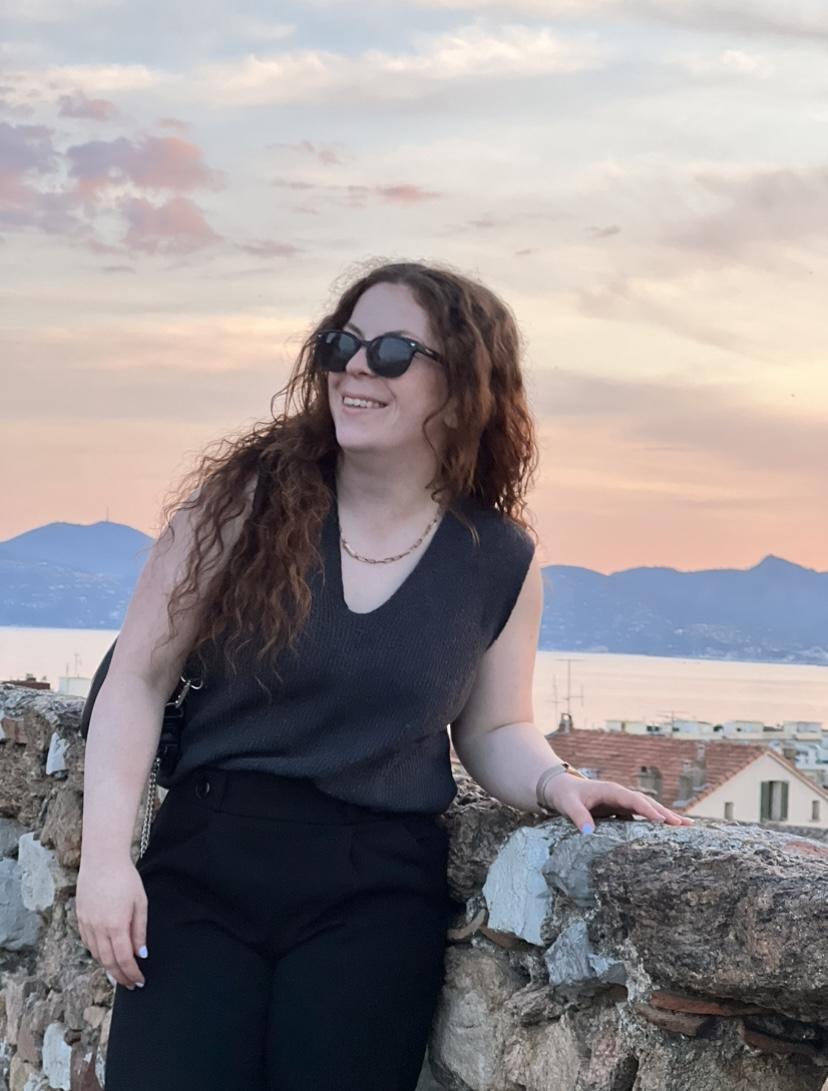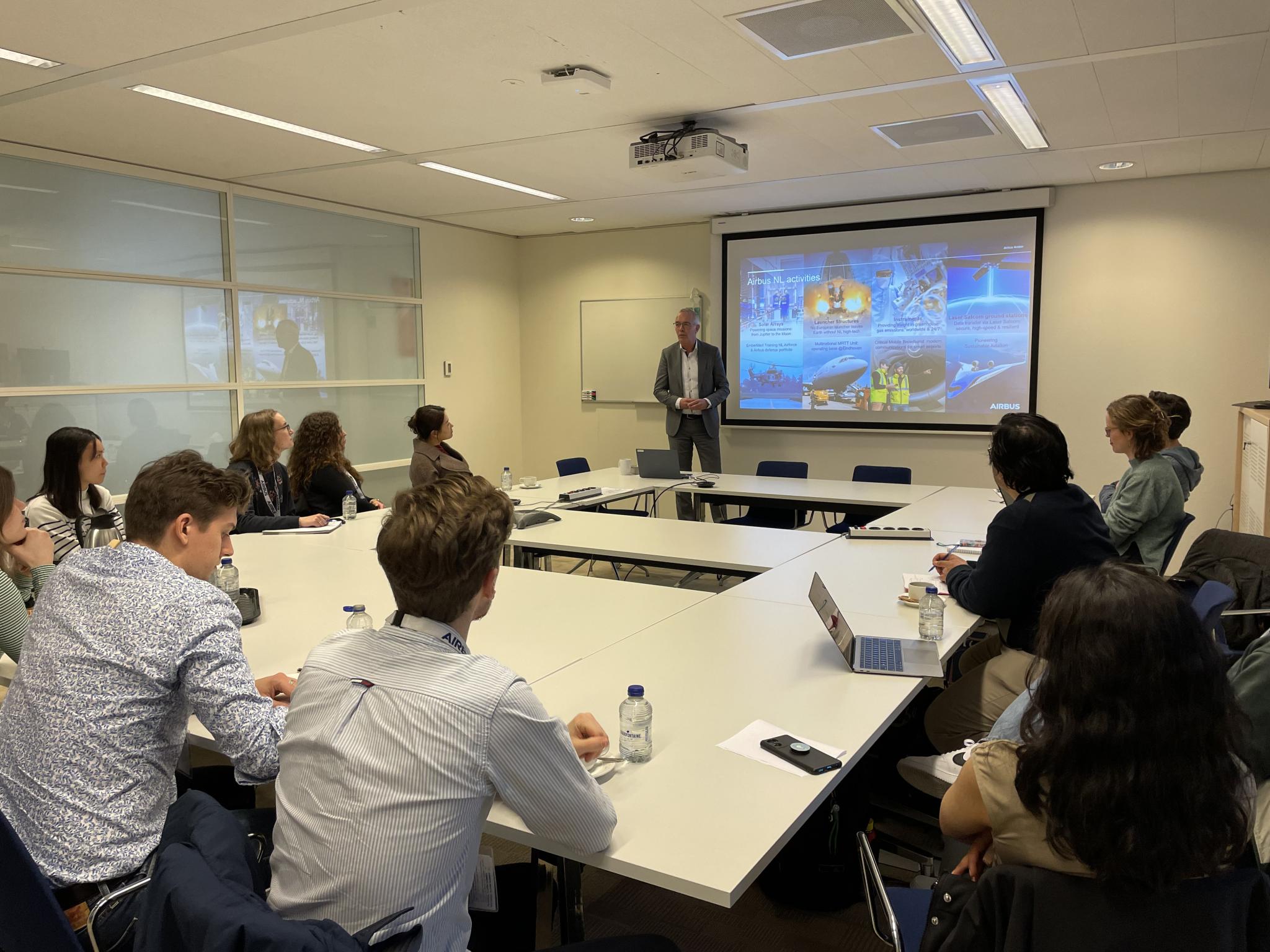Students from our Thesis Labs share their experiences in Lablogs. What did they discover so far in their Lab? This time Melánia Molnár, master’s student in Applied Cognitive Psychology at Leiden University and participant of the Thesis Lab 'Circulaerospace'. Read Melánia's Lablog.

Name: Melánia Molnár.
Age: 25 years.
Thesis Lab: Circulaerospace
Master: Applied Cognitive Psychology,
Leiden University.
Incorporating sustainability innovations to aviation is safe to say the challenge of the century."
Participating in the lab is an amazing opportunity. It provides a unique experience and an opportunity to connect with students and professionals from different fields. Incorporating sustainability innovations to aviation is safe to say the challenge of the century and I was curious to see how psychologists can bring to the table in this field.
During the Leiden site visit we were able to learn how solar panels of satellites are produced and manufactured, what challenges this industry faces in the sustainability domain, and where their future is headed. As a psychologist, it was fascinating to observe the unique working conditions and to experience first-hand the precision and focus these processes require. What makes the working conditions unique to this industry, is that the tasks are conducted in a workshop style (meaning only a handful of people work on a task in well-lit spacious labs). It was truly a once in a lifetime experience, and it made me wonder about the effects of ergonomics on employees within this industry.
My thesis
In my assignment I looked into how fatigue can be measured accurately by biomarkers (e.g., heart rate variability) and how workers chronotype (preference for being active in the morning or evening hours) affect them experiencing fatigue during their shifts. In the bigger picture if fatigue managed well, it could reduce the risk of accidents, mistakes and prevent waste production.
A few months ago, I arrived at Airbus’s Research & Technology Centre in Hamburg, where I spent eight weeks investigating assembly workers’ fatigue and its relationship to sustainability. At the R&T department they were open to new ideas, to collaboration and to think collectively. It is a great feeling that as a student my ideas were heard by researchers with years of experience. Moreover, they were able to provide valuable feedback, resources, and support. As my study progressed, I found myself deep-diving into the topic of the general well-being of personnel of aviation, hence, the question: “What can lifestyle choices contribute to performance and efficiency enhancement in order to achieve sustainability goals?”

What I have learned
In the past months, I was in the fortunate position to learn about many things: processes in aviation, collaboration, embracing ideas, sustainability challenges, just to name a few. What I would like to highlight is the complexity of the challenge of making aviation sustainable while answering the growing demands and expansion of opportunities to travel and transport. These two phenomena are dynamically interrelated yet contradictory at the same time, pressing scientists and researchers to implement solutions that are safe and effective. The presentations of the lab sessions helped to comprehend this issue.
My fellow participants were mostly engineers, and it was truly fascinating to witness their knowledge in action and to learn about certain elements’ production, techniques to reduce materials weight or how decision-making processes are taken place in aviation. In the group sessions everyone was open to the other ones’ ideas, and I had the feeling that we learned a lot from each other.
